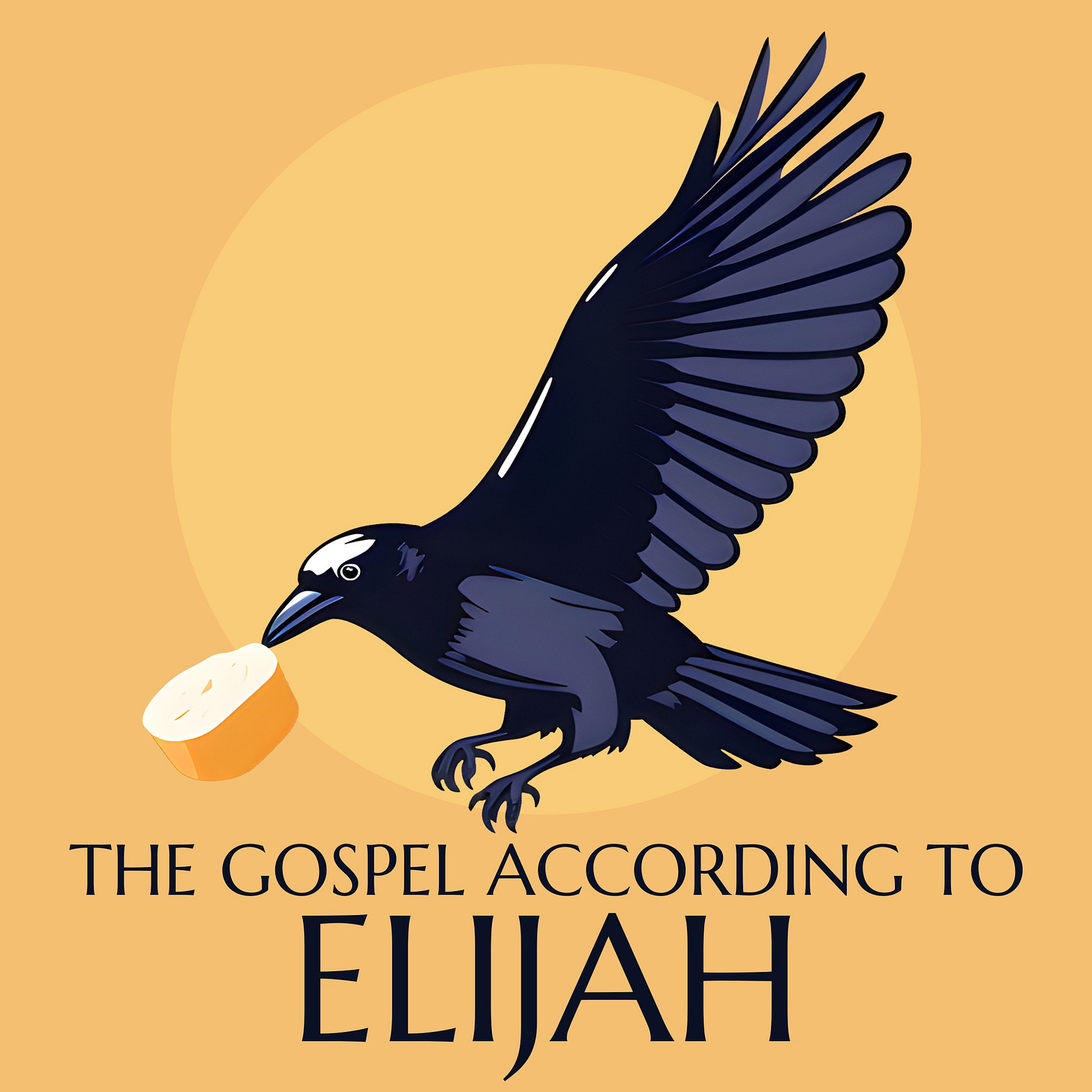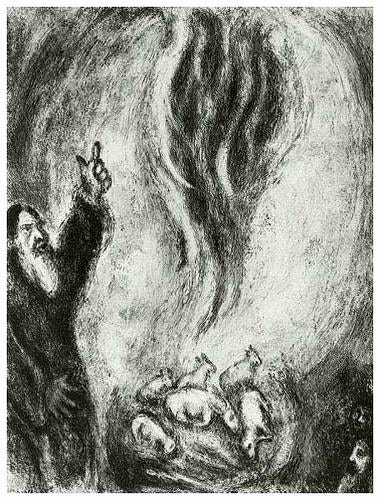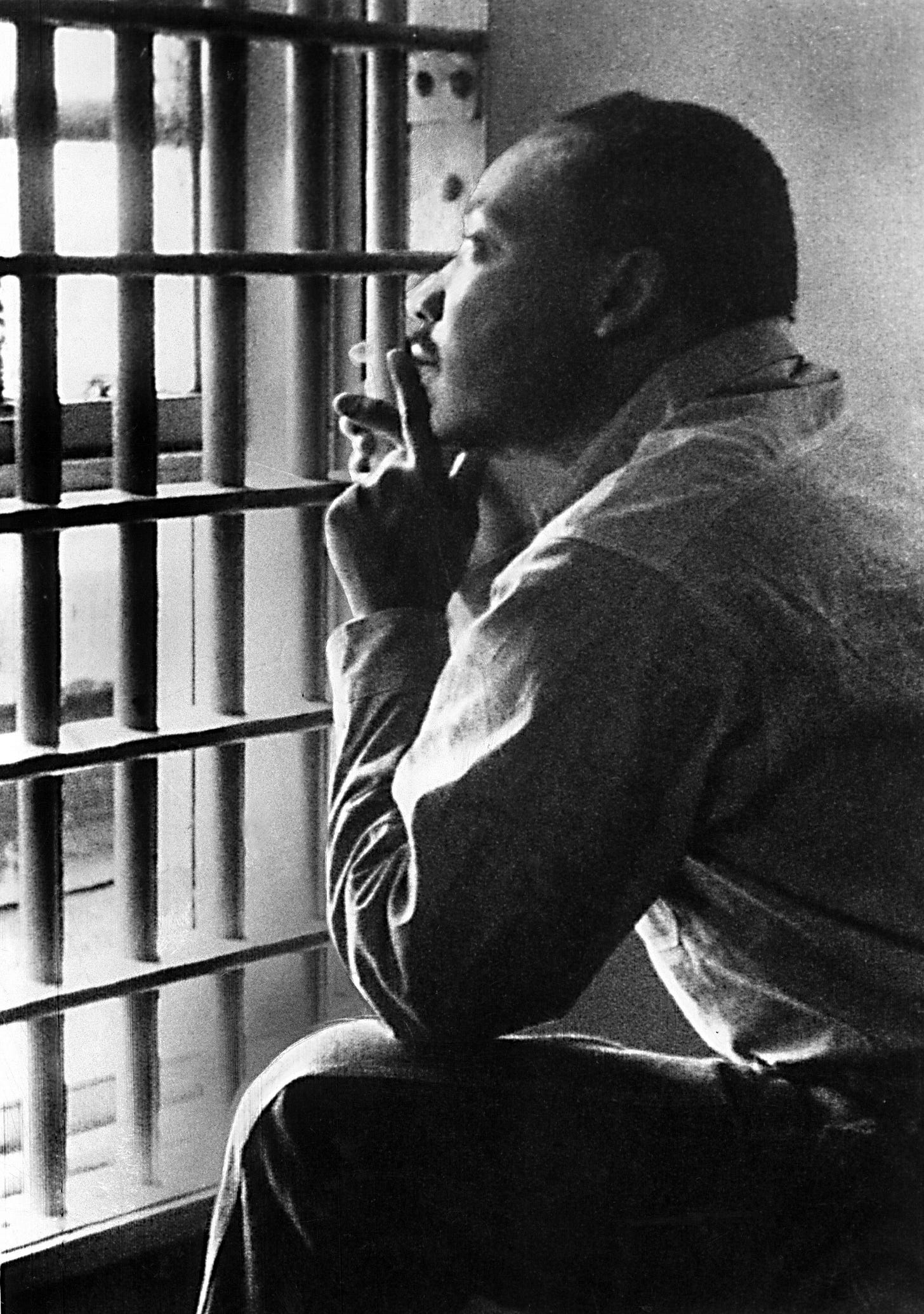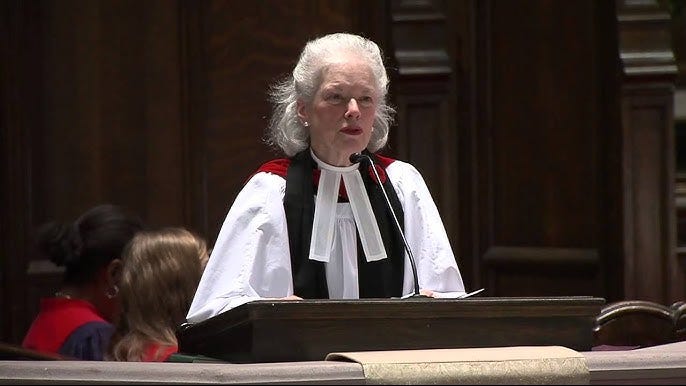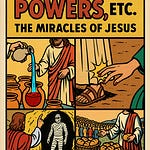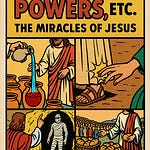1 Kings 18.20-40
“If the Lord be God, follow him, but if Baal be God, follow him, and go to hell!”
Thus did the preacher Peter Marshall conclude his famous sermon, “Trial By Fire,” on 1 Kings 18 during Lent in 1944.
An immigrant from Scotland, Peter Marshall served for two years as the Chaplain of the United States Senate until his premature death in 1949. Prior to the position, Peter Marshall served as the pastor of the so-called President’s Church, New York Avenue Presbyterian Church in Washington DC.
Nearly a decade earlier, on March 11, 1944, Peter Marshall was the guest preacher at St. Charles Presbyterian Church in New Orleans, Louisiana. Knowing he had the ear of many leaders in Washington, the preacher fixed upon verse twenty-one in the passage, the prophet’s question to God’s fickle, inconstant people: “How long will you go limping with two different opinions? If the Lord is God, follow him; but if Baal, then follow him.”
In his thick Scottish burr, in a city still haunted by an authoritarian demagogue, Marshall exhorted his hearers with words that ring eerily prescient:
“A time like this demands strong minds, great hearts, true faith, and ready hands — men whom the lust of office does not kill, men whom the spoils of office cannot buy, men who possess opinions and a will, men who have honor, men who will not lie, men who can stand before a demigod and damn his treacherous flatteries without winking… We need a prophet who will say to America now, “How long will you go limping between two opinions? If the Lord be God,
follow him, but if Baal be God, follow him, and go to hell!”
I don’t know how the preacher’s word landed at St. Charles Presbyterian, but when posed to its original hearers the question induced only guilt-stricken silence, “The people did not answer Elijah a word.”
Actually, the Hebrew word is hop not limp.
And the word translated into English as opinion is branch.
Like a bird hopping between two branches, hesitating to choose which branch finally to stand perch:
“How long will you go hopping between two branches? If Yahweh is God, follow him, but if Baal is God, follow him!”
However you translate it, the response is the same.
God’s people offer no reply.
Carmel means vineyard or orchard. With the Mediterranean stretched out on one side of the mountain and the Wadi Kishon unfurled on the other side and the Mount of Transfiguration rising up in the distance, the verdant Mt. Carmel was associated with fertility and abundance in Elijah’s day. The Carmel range marked the boundary between the Kingdom of Israel and the Kingdom of Tyre— Jezebel’s home. Thus, Elijah challenges the prophets of Baal on the border of Baal’s territory.
Challenges the prophets of Baal.
Interpreters typically pose this passage as a decisive contest between the God of Israel and the Canaanite Zeus, but this misses the judgment running through the Book of Kings— a judgment upon the kings.
This is not a bout between Yahweh and Baal.
There is no Baal with whom the Lord could contend.
The parched land has proven Baal to be a lie and his prophets to be grifters. This passage is not a contest between God and not god nor is it a competition between the prophet Elijah and the charlatans of Baal.
As has been true since Solomon, the problem in Israel are the Ahabs; in this case, the corrupt tyrant with his foreign wife. God’s people have wandered away from their covenantal vocation and have fallen into unfaithfulness not because Baal has any power over them but because Ahab does.
The rain god cannot even make it rain.
Baal wields no power over the people.
His prophets are pretenders.
It’s all a Big Lie.
The Lord’s faithful are few in number— Elijah, Obadiah, a hundred Jews hidden in caves— because Ahab has either frightened the rest of God’s people into unfaithfulness or enticed them with the power and profit promised by his patronage. As Peter Marshall put it, the silent majority are not people who can stand before a demigod and damn his treacherous flatteries.
Just so—
The confrontation at Mt. Carmel is not a contest between Yahweh and Baal.
The confrontation at Carmel is a defenestration of Ahab. It’s an unveiling— a revealing— of the Big Lie at the heart of his corrupt administration.
“How long will you go limping between two opinions?”
And the people did not answer him a word.
“To act half as children of time and half as children of eternity, brings with it entire death.” So preached F.W. Krummacher in his 1845 sermon, “Elijah and the People at Mt. Carmel.” A German Reformed pastor, Friedrich Wilhem Krummacher was the Peter Marshall of the nineteenth century. In 1853 Krummacher became the court chaplain for the Prussian King and remained in the position until his death.
In his sermon on 1 Kings 18 in 1845, Krummacher similarly fixed his focus on verse twenty-one. A century before Peter Marshall and three thousand years after the prophet Elijah first posed it, the question remained a live one to God’s people, “How long will you keep hopping from branch to branch without standing firm?”
After first describing the scene and surrounding landscape at Carmel, Krummacher preached:
“But if Elijah were now preaching amongst ourselves, surely he would not long endure to witness the double-mindedness and indecision which prevails among professed Christians…They prefer the golden calf of the lusts and honor of this world…Be therefore pilgrims and strangers decidedly; lay aside every sin, everything which would impede your progress; esteem all such things as dross and dung, that ye may enter in at the strait gate, and that the word “Eternity” may not at the last be a word of thunder to you.”
“How long will you go limping between two opinions?”
Krummacher's sermon inspired the composer Felix Mendelssohn to write the oratorio, Elijah; otherwise, the people did not answer him a word.
When the Israelites offer Elijah no reply, the Man of God commands Ahab’s prophets to put up or shut up. He orders them to sacrifice a bull and call upon Baal for fire.
So they pray.
From morning to noon and then from noon to three, they prattle and plead, “Oh Baal, answer us!” Like a bird from branch to branch, they hop about their altar. When words don’t work, they try blood, cutting themselves and smearing the altar. But, the Book of Kings reports, Baal was as silent as Ahab and all the Israelites; “there was no voice, no response, no answer.”
All the while Elijah dishes what every tyrant most hates. He mocks and ridicules them. “Speak up! Baal must be hard of hearing. Maybe he’s away from his desk or taking nap.”
Four hundred and fifty “prophets” praying to Baal.
That’s a lot of noise, a lot of prayers, a lot of blood.
Before dusk falls and after the prophets have failed, Elijah beckons all of Israel to gather closer to him on top of Mt. Carmel. Then Elijah simply calls upon the name of the Lord. This is the only instance where the Book of Kings calls Elijah a prophet.
And the Lord answers with fire.
When they witness the Lord’s mighty deed of power, like nervous birds God’s people hop to the other branch, declaring, “Yahweh is indeed God!”
But, time only tells— that was not our final answer.
God’s people did not long remain on that perch.
In the handwritten notes he filed in a folder marked “Sermon Notes,” the Reverend Martin Luther King Jr. sketched several possibilities for preaching on 1 Kings 18. And while King did not explicitly mention Elijah in his 1963 Letter from Birmingham Jail, the prophet’s unanswered question is at the heart of King’s rebuttal to the eight liberal Christian and Jewish clergymen who had admonished him publicly to be more moderate— limping— in his activism.
“How long will you go hopping from branch to branch?”
When Will Willimon became the United Methodist bishop of the Birmingham region in 2004, he hung a framed copy of preacher King’s “Letter from Birmingham Jail” in his episcopal office.
He writes:
“Character formation occurred every time I looked at the letter that disruptive King addressed not to redneck Klansmen but to well-meaning but overly cautious, balance-loving white, liberal bishops like me who, despite their better angels, thought it more important for the church to be happy than faithful.”
When Willimon exited the episcopacy in 2012, a reporter from the Birmingham News interviewed his wife, Patsy, asking her, “How did your husband surprise you?” She answered, “His courage, his dogged determination in the face of fierce, cowardly opposition, most of the cowardice came from the clergy he was attempting to lead.” In other words, even if the framed rebuttal from Dr. King helped Willimon to stand firm, the prophet’s unanswered question nonetheless remained a live one for the disciples in his care.
“How long? If the Lord be God, follow him, but if Baal be God, follow him, and go to hell!”
There on Mt. Carmel, with the prophet Elijah standing before them, maybe God’s people do not respond because they do not see a contradiction in their convictions.
I can straddle these branches just fine, thank you.
We’re already on the side of righteousness.
Perhaps they are silent out of shame, for they know what Ahab and Jezebel have done to the Lord’s prophets who did not bend the knee and kiss the ring. Those whom Obadiah has not hidden Ahab has executed.
It could be that they say nothing because they fear staking out a position. After all, Ahab is there on Carmel with them and it’s hard to buck the mob, especially when it’s in thrall to a demagogue.
Back in January 2021, Fleming Rutledge sent me a text message. The retired Episcopal priest and author dressed me down and exhorted me:
“If this is not a time for courage in the pulpit, fellow soldier, I can’t imagine what that time would be. Throughout history, there are circumstances in which the true church can take only one position, rejecting the alternative. From the sermons I’ve watched online, all I have found from preachers is studious avoidance of controversy including from you. Jason, you must love the Lord more than you like your hearers. You must take seriously your responsibility to him to preach and teach the truth in this Empire of Lies.”
And then she quoted the prophet Elijah, “How long will you go limping between two opinions? If the Lord be God, follow him.”
It’s a testament to what a nimble little bird I am, hopping back and forth, that I redacted her message to me for this sermon. I took the edge off of her message for fear of triggering some of you in my message.
How long?
Still.
I’m a bird with many branches.
In his 1944 sermon, Peter Marshall exhorted his hearers— again, he could’ve delivered the sermon last Sunday:
“All traitors are not enemy agents. Espionage and sabotage are not the only weapons that harm a nation. Love of power and authority has enslaved the hearts of many Americans. The seeds of racial hate and intolerance have been sown. Millions of people in America live in a moral fog…Surely the time has come when we must decide…“How long will you go limping between two opinions? If the Lord be God, follow him, but if Baal be God, follow him, and go to hell!”
How long?
Again and again, in sermon after sermon, preacher after preacher— 1944, 1845, 1963, 2004, 2021, 863 BC— has fixed upon the prophet’s unanswered question at the top of the passage, “How long will you go limping between two conviction, hopping from branch to branch?”
And the people did not answer him a word.
They do not offer Elijah a timetable, which is but a tacit admission:
“How long? We can keep this up forever. Let history be the judge. We can go on limping and hopping, back and forth, Yahweh one day and Ahab the next. We can hop back and forth several times in a single morning. We can keep this up until the kingdom comes.”
If the Lord be God, follow him, but if Baal be God, follow him, and go to hell!
With all due respect to Peter Marshall, if our hope rests in the choices we make, in the steadfastness of our fealty, in our ability to stand firmly perched on the Lord’s side— if we are our hope from hell, we’re @#$%#$%.
I for one don’t see any contradictions between my Christian convictions and my worldly commitments.
But then, chances are, neither do you.
And we likely don’t agree on a great many matters that matter.
Therefore, in every instance and for every item of debate, a great many of of us are wrong.
We’re either on the wrong branch, with the wrong opinion, or in between the two, straddling the fence.
Some of us sincerely believe we are on Yahweh’s side.
And we would surprised to discover we are on the branch labeled, Ahab.
Elijah’s question to God’s unfaithful people is evergreen.
This is why preacher after preacher through the ages has fixed on it.
The only constant about God’s people is our inconstancy.
Just so—
It’s all the more unfortunate that in all those sermons on this passage the preachers never got around to handing over the goods.
They so focused on the question with the unspoken, indicting answer at the top of the passage that they neglected the grace at the climax of this text. In setting out to prick consciences with the threat of the law that lingers in Elijah’s question, they overlooked the gospel that is the Lord’s answer.
We are so unfaithful and fickle, inconstant and unreliable, that in sermon after sermon, preacher after preacher has fixed upon the prophet’s damning question and failed to hand over the goods. Peter Marshall never once mentioned Jesus Christ in his sermon. His sermon is all law and no gospel. He never handed over the goods.
And handing over the is more urgent than pointing out our sin.
On Wednesday, I received an email from someone who worships with us online.
Sarah wrote to me:
Every morning, like many, I make a gratitude list and there have been so many days when your church is on my list. So I thought maybe it was time to write you and tell you, "thank you."
I am a 64-year-old woman who lives in Colorado. I am a therapist, so I hear a lot of bad news on most days. We may have a friend in common. I was an adjunct professor at a seminary here in the counseling program for twenty years until they fired me two years ago because I couldn't stop talking about how good the Good News really is. I'm a recovering alcoholic, so I have something like cancer in my bones too. It’s something that will surely kill me if I don't treat it every day by surrendering to practices that don't come naturally to me like confession and a community of grace. I also have two adult children who are dearer to me than my own life. One is an untamed cynic who is trying so hard to forget he really does believe in God and my daughter - well she is just desperate for love and looking in the wrong places.
So I will say again, I really need to hear the Good News.
A lot.
I found your church online, thank God. In a day when the news of the day is so bad, thank you all for broadcasting the good news. And if you all ever get discouraged, know there is a woman in Colorado who is hanging on every sung note and spoken word.”
Elijah’s question is evergreen.
Nonetheless, our everlasting vocation is to hand over the goods.
The gospel is simply more compelling than our sin.
Hence—
See the Good News:
Elijah may not speak the gospel, but the scene surely shows it. Notice, Elijah doesn’t bother with the bull as the prophets of Baal had done. Elijah instead rebuilds an altar of Yahweh on Carmel. The Yahweh altar had either been destroyed or neglected.
Elijah erects an altar— a gate of heaven— using twelve stones, one for every tribe of Israel. The prophet then digs a trench around the circumference of the altar. Next he waters it well, filling the trenches. The sky has been shuttered— there’s been no rain— for three years, yet Elijah takes four jugs of water and lavishes it upon the altar so confident is he in the grace of the living God.
He pours out the water three times.
In the name of the Father.
And of the Son.
And of the Holy Spirit.
He fills the trenches around the twelve stone’d altar.
He’s not simply ratcheting up the degree of difficulty.
He’s supplying a substitute— as the Word has directed him.
With all of unfaithful Israel gathered around him on Carmel, with Ahab the inducer of their unfaithfulness there with them, Elijah has built a vicarious Israel.
The altar table made of twelve stones represents Israel. And, according to scripture, just as God had done for his vineyard Israel, Elijah has dug trenches around his substitute Israel and watered it well.
The altar is a representative for Israel.
And then Elijah prays for the God of Israel to answer with fire. It’s not a prayer you necessarily want answered if you’re anyone not named Elijah.
As far back as 1 Kings 8, ten chapters earlier, over a century ago—
The Lord had admonished his people that because of their unfaithfulness their Temple would be destroyed and the fire of God’s judgment would fall.
Nevertheless!
Year after year, the Temple stood.
Still.
And when the fire of God’s judgment finally falls— when all of the unfaithful are gathered together in one targetable location— the wrath of the Lord instead condescends upon the substitute Israel, burning up the wood and licking up the water, scourging the stones and forsaking the sacrifice.
And thus sparing all the sinners gathered near it.
The substitute Israel suffered in Israel’s stead.
“If the Lord be God, follow him, but if Baal be God, follow him, and go to hell!”
No.
With all due respect, that’s not the gospel.
Sure, most of us limped in here and thus shall we leave and likely we will so return. And until we meet again, we will surely hop from branch to branch to branch, straddling Yahweh and Baal and Ahab and whatever other barren deities swell our hearts.
Yes, sure, of course.
But!
We have a Substitute.
We’re all birds with many branches.
But!
We have sin-bearer.
The fire of God’s judgment will fall not on you.
It has already fallen.
It fell on him.
Not an altar table but the true Israelite.
The fire fell not on the wood gathered around a bull.
It fell on the wood of his cross.
It fell not on Carmel.
It fell on Calvary.
And it licked up against not the water watering trenches around him. It released the water from his side, baptizing all of us into his death for our sin and his rising for our righteousness— that’s freaking Romans chapter six!
“If the Lord be God, follow him, but if Baal be God, follow him, and go to hell!”
It makes for a compelling fire and brimstone sermon perhaps, but no.
He’s wrong.
We have a Substitute.
And he descended into hell.
He lives with death behind him.
And he holds the keys of hell and death.
Because he lives, so shall you live.
No behavior, no righteousness, no obedience required.
No unfaithfulness, no idolatry, no sin exempts.
He holds the keys of hell and death.
Because he lives, so shall you live.
Don’t believe me?
Come to the table.
At that other altar, Baal gives was no voice, no response, no answer.
At this altar, the Lord Jesus not only holds the keys of hell and death, he hands you his own body and blood and says— to unfaithful, idolatrous, sinful you— “You are forgiven.”
You are.
Enjoy your forgiveness.



